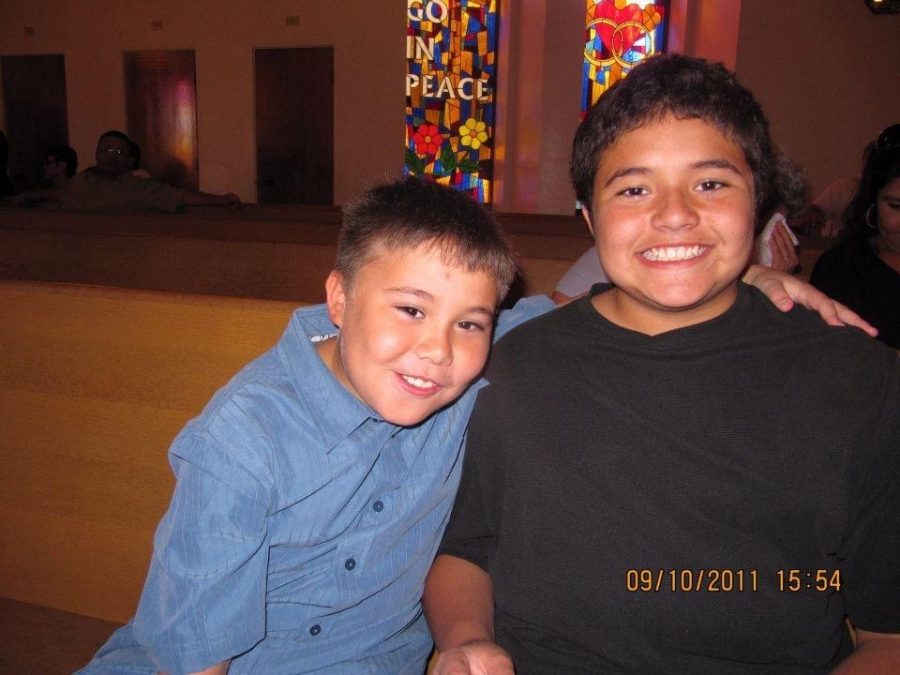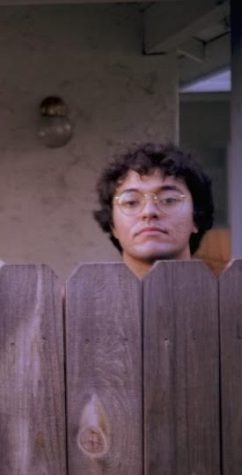“You never loved me!” my brother screams.
“What are you talking about?” I reply, as my voice cracks.
The car is filled with tangible hate. As tears flood my eyes, and my stomach drops.
I’m the oldest of three, and when you’re the oldest sibling, it’s a lifetime job. My mom always reminded me, “You set the example.”
That’s a lot of pressure. There is no book you can buy to learn how to be a good big brother, you learn as you grow. Mistakes were made.
Growing up as kids, my brother Matthew and I never got along. I thought that was normal. I had friends who didn’t get along with their younger siblings, and they grew up in a big family with older cousins. Younger kids are treated differently because the older you are the more seniority.
Being three years apart isn’t a giant age gap, but it was enough for me to view my brother as below me. He was a little kid, annoying, lazy and too goofy to hang out with my friends.
It also didn’t help that he always told on me to our parents when my friends and I were doing things we shouldn’t have been. Like throwing rocks at cars, egging houses or ding-dong-ditching homes.
I would embarrass Matthew in front of my friends by calling him names and sending him home crying.
When I got insecure about my weight in middle school, I took it out on him. I was a bully. I fat-shamed him.
At the time, I believed I was helping. I didn’t want him to be like me, an overweight seventh-grader who couldn’t get a date to the junior high dance.
However, the bullying was never right.
In school, my brother excelled more than me, bringing home straight A’s every year — causing my insecurities to grow. So, the bullying got worse.
I realized how strong my words could be and making him cry became easier.
According to Sibling Bullying and Risk of Depression, Anxiety, and Self-Harm: A Prospective Cohort Study, “Being bullied by a sibling is a potential risk factor for depression and self-harm in early adulthood.”
Tension built between us. My parents tried, but we still ended up fighting.
“What did we do wrong?” my mom said, sobbing.
Much of my youth I felt alone. I never realized that I had my brother, that we could be friends.
I would abuse weed, and isolate myself from my family.
“Tense sibling relationships make people more likely to use substances and to be depressed and anxious in adolescence,” according to Sibling Relationships and Influences in Childhood and Adolescence.
“Why are you guys fighting?” My dad said. “I never fought with my brother.”
My dad’s relationship with his brother was special. A year older, my dad was held back so he and my uncle could go to school together. They were teammates in various sports, partied together, and each had three kids all around the same age.
My brother and I only got along on the basketball court. Even then I would find a way to bully him. I would throw the ball at him or knock him to the ground, just being a dirty player.
“Suck it up!” I yelled.
As I started smoking weed in highschool, my brother and I grew further and further apart.
“You’re just a loser druggie,” he would say.
By the time I became a senior in high school, my brother joined me as a freshman. The bullying had stopped, but I still didn’t think my brother was “cool” enough to hang out with me.
I wouldn’t give him a ride to school or take him home. We didn’t really go out for lunch. I would give him advice but mostly I would let him survive alone when he probably needed me more, as a friend and probably a mentor.
It finally came to a boil one cold night in December. We were in the car with my mom on our way home from catechism.
We began to bicker about nothing. But this argument was a little different. My mom couldn’t neutralize the situation, so we kept going.
Our anger at each other kept building. It escalated quickly.
Then the argument got personal, so I began to personally attack him. Then he started crying, and the words “you don’t love me” finally came out.
Those words stabbed me like a knife in the heart, causing a pain I’ve never felt before. Total despair consumed my body. I was genuinely heartbroken.
My brother finally confronted me about me being a lousy sibling. I had never heard him use so much raw emotion.
I had never seen tears running from anyone’s eyes like that.
“I just wanted to be your friend,” he said. “You’re the only one I got.”
According to Psychology Today, “A child who is the victim of sibling bullying develops a sense of helplessness and isolation.”
I looked at my mom, and her face explained it all. I unbuckled my seat belt, turned around, and hugged my brother like never before. I wiped away his tears and looked him in the eyes.
“I love you, bro, with my heart, and I’m sorry,” I said, with snot and tears running down my face. “I never meant to hurt you like this. I don’t know what’s wrong with me or what led me to do this to you, but I’ll never do that to you again.”
From that night on, our love and friendship grew. There was no more bullying, no more tears.
Today, I finally figured out how to be successful at this job.
Bullying your sibling isn’t the way to earn respect, or to teach your sibling. It can cause harm and destroy a relationship.
Mario Ortiz can be reached at orionmanagingeditor@gmail.com or @realnameismario on Twitter.








